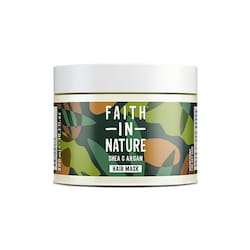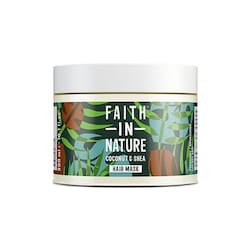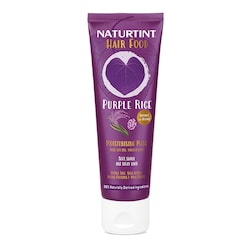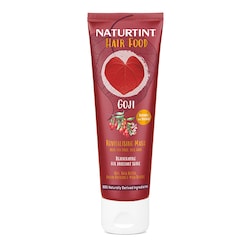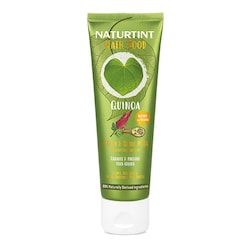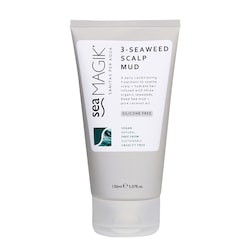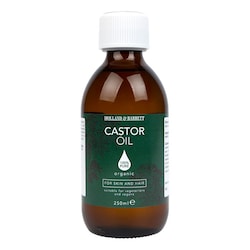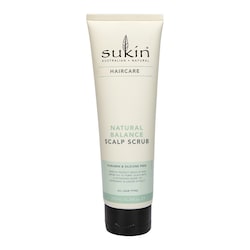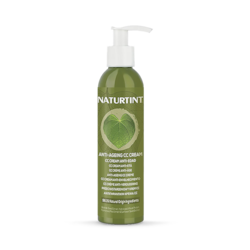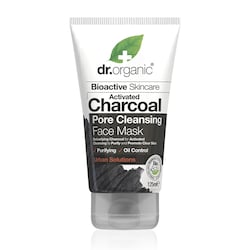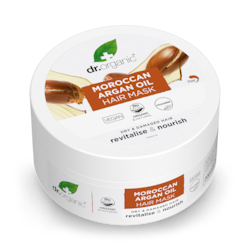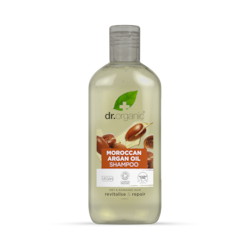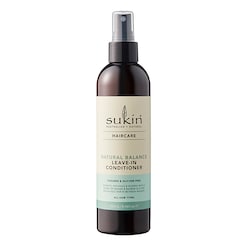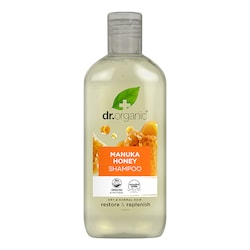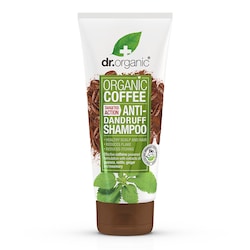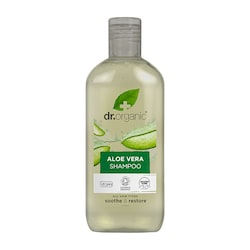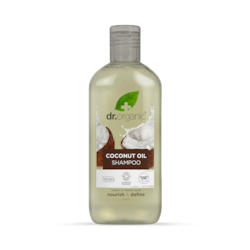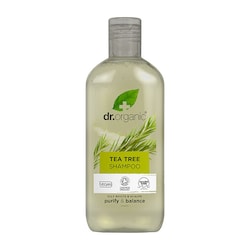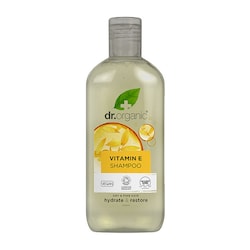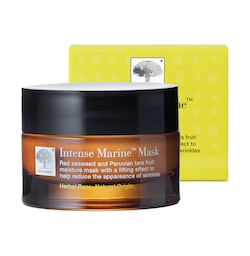20% off £30
14 ways to stop dry frizzy hair
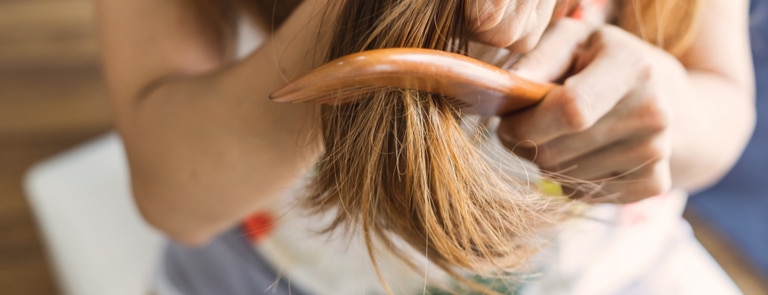
Frizzy hair. Some people love it… most don’t. But no matter your feelings on the matter, sometimes you just want to have a frizz-free hair day – because why not? It’s your hair, so choose what works best for you. Now, back to the frizz. The cure is often harder than the cause, but if you want to know how to stop frizzy hair then we have the answer.
But first, let’s get into the science of it all.
What is frizzy hair?
Frizzy hair is basically hair that does not align with the surrounding hair - curling or standing up independently from the rest. This is why frizzy hair often causes an irregular or fuzzy texture.
Some people’s hair is frizzy naturally and can be inherited from parents / grandparents, but some becomes frizzy due to damage or humidity. We’ve all seen that Friends episode with Monica’s hair right?
Frizzy hair can also look different on different hair types.
What causes frizzy hair?
If you have long hair, you’ll be all too familiar with humidity. Human hair is extremely sensitive to it, with straight hair becoming wavy and curly hair turning frizzy. But why does it do that?
The scientific answer is that the chemical structure of hair makes it highly susceptible to changes in the amount of hydrogen in the air. Hair is made up of bundles of keratin proteins, which can bond with the hydrogen and weaken it – meaning that on a humid day a strand of hair can generate a higher number of bonds, causing it to fold back on itself.1
A much simpler explanation is that when hair is damaged or dry, the outer layer of hair (the cuticle) begins to lift, allowing moisture to pass through and swell hair strands. Basically, when your hair becomes dry it starts to develop moisture which causes your hair to become frizzy.
Curly frizzy hair
When curly hair is frizzy, it can turn into a BIG issue. Your hair is already centre-stage, right? But you probably want your mane to get attention for the right reason.
Curly frizzy hair can be a sign of:
- damage
- dehydration
- using the wrong products / hair towel / or even pillow for your hair type
Or it could just be really humid outside! However, there’s always room for some frizz improvement. Even if you can’t control the weather, you’ll see a difference in how it reacts to it.
Straight frizzy hair
Perhaps the most loathed type of frizzy hair, frizzy straight hair is often a symptom of some damage or simply air humidity.
Using your hair dryer, straighteners, curling irons or other heat styling could be causing your hair to break off at random points and ‘stick out’. You can usually see this a lot near the scalp – that fly-away, frizzy halo that nobody really asked for!
Dry frizzy hair
As mentioned above, one of the main causes of frizzy hair is dehydration and damage. So, if your hair was on the dry side to begin with… the frizz can get very real.
Summary
- Frizzy hair is usually caused by humid weather, genes or dry, damaged hair
- Not all frizzy hair looks the same, you can get straight, curly, wavy and dry frizzy hair – to name a few
- We have some tips on how to avoid developing / help treat frizzy hair for you below
How to get fizz free hair: 14 top tips
The best way to fix frizzy hair in the future is prevention. With that being said, here are some simple tips you can follow at home2:
-
Get your hair cut
Giving dry and dead ends the snip is one of the best ways to tackle the frizz. This is because split ends can travel up the hair follicle and cause even more damage and frizz. If you live somewhere with high levels of humidity, consider a haircut with blunt ends to help keep hair weighed down.
-
Choose your shampoo wisely
A lot of shampoo contain ingredients that can dry out the hair over time. Make sure you choose shampoos with hydrating ingredients like glycerin, shea butter, argan oil, and other moisturisers that help nourish your hair and free it of frizz.
-
Don’t scrimp on the conditioner
Conditioning your hair is so important if you want to fight the frizz. Using a good hair conditioner helps your hair to retain its natural moisture and protection after shampoos strip it (even the most moisturising one is going to strip away at least some moisture unfortunately). Try ditching the shampoo and just using conditioner every other wash to see if it helps.
-
Invest in a microfibre towel / hair wrap
Microfibre towels or wraps are very gentle on the hair. This lightweight fabric can dry your hair – no problem, while causing less damage than a traditional cotton bath towel.
-
Avoid brushing hair before and after drying
Brushing your hair during this time can cause it to fray and ultimately frizz. Use your fingers to gently maneuver the hair while your dry it instead.
-
If you must brush…
Use a wide-toothed comb or de-tangler, as they are less likely to cause disruption to your natural hair follicle shape and are less likely to cause breakage.
-
Use a diffuser when blow-drying
Reducing the amount of direct heat and forceful air on your hair limits it from moving, which helps create less friction and frizz. This is especially great for those with naturally wavy or curly hair to allow your hair to dry bouncy, rather than frizzy.
-
Let your hair dry 90% before blow-drying
Doing this can make a heap of difference to your hair, as it helps the strands dry without disruption. Also, remember to keep the dryer at least 6 inches away from your head and be sure to move it around to prevent overheating certain sections.
-
Turn down the heat
A lot of our styling products work perfectly well on low-heat settings, try them out before blasting your hair with the hottest temp. And always use a heat protective product like a spray or leave in cream.
-
Consider a silk pillowcase
Swapping your cotton pillowcase for a silk pillowcase allows your hair to beautifully flow over the fabric while you sleep, rather than get snagged by it. It feels pretty luxurious too!
-
Wrap your hair into a bun
If you like to shower at night and go to bed with your hair damp, or want to preserve your hair style overnight, a bun may be just the trick. Pull your hair back into one or more loose buns to help keep your hair from getting damaged or tangles as you toss and turn. In the morning, simply run your fingers through
-
Brush down stubborn frizz
Unfortunately, it’s hard disguise every last bit of frizz. Here’s a top tip to flatten those odd few fly-aways when your hair is dry and styled: spray a clean toothbrush or mascara wand with some alcohol-free hairspray and comb it through bits of your hair that are frizzy.
-
Use coconut oil as part of your routine
Coconut oil has plenty of benefits for your hair, especially when it comes to frizz. It works by nourishing your hair with its natural oils on the inside as well as the outside. Try using coconut-based products to help nourish and treat your hair, for visibly smooth results. You can also use other oils like argan oil, olive oil and sweet almond for similar results.
-
Cut out the alcohol
Don’t worry, we’re not suggesting you go tee-total! Removing products that contain alcohol from your hair styling arsenal, like hair spray, can help tame the frizz. This is because alcohol can be very drying for your hair.
Can you permanently get rid of frizzy hair?
It all depends on why your hair is frizzy in the first place. Yes, some people can improve their frizzy hair by following the tips above, but it may never be ‘permanently’ got rid of. This could be due to your genetics or the environment you live in. For example, if you live in a naturally humid place and have a tendency for frizzy hair… it can be more damage control rather than complete frizz elimination.
What are the best products for frizzy hair?
Taming hair frizz has become a major industry, with countless treatments and serums available that offer to fix it. There’s plenty of off-the-shelf remedies that can help you, but there are some natural treatments too. Here’s just a handful of products you can use to help hair frizz.
1. Ethique Frizz Wrangler Shampooo Bar for Dry or Frizzy Hair
- Perfect for very frizzy or dry hair
- pH balanced and safe for coloured hair
- Full of Samoan coconut oil, cocoa butter and other natural goodness
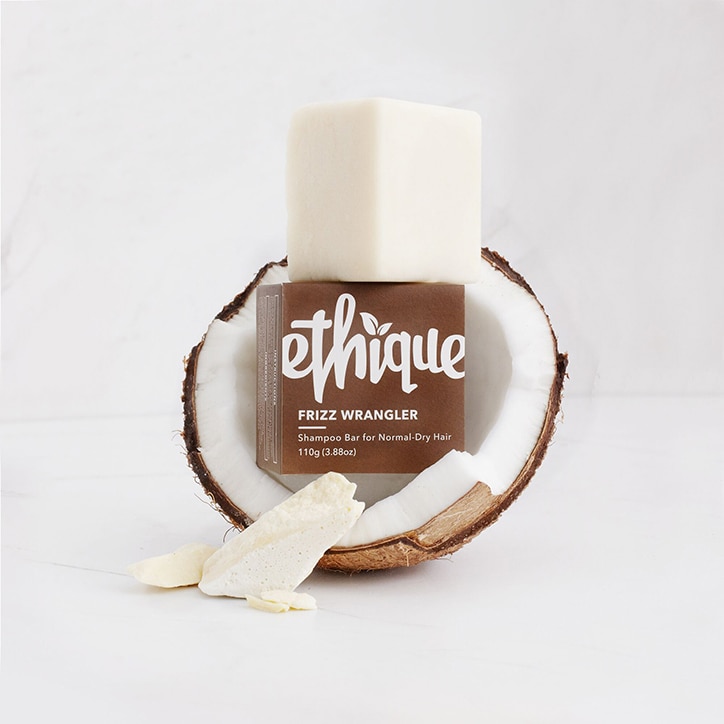

2. Jason Organic Sea Kelp Conditioner
- Helps keep hair silky-smooth
- Infused with hydrating and humidity-tackling botanicals like shea butter, sea kelp, grapeseed oil and porphyra algae
- Light formula weightlessly fights frizz all day long
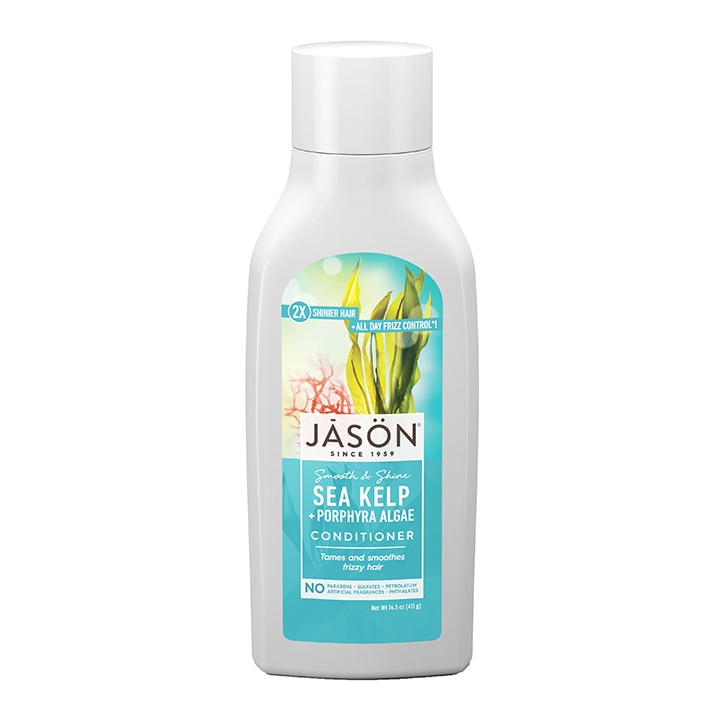

3. Afrocenchix - Sheen Moisturising Hair Spray
- Lightweight, refreshing moisturising spray
- Perfect for frizzy, curly and Afro hair
- Aloe vera and grapeseed oil to moisturise and revive strands
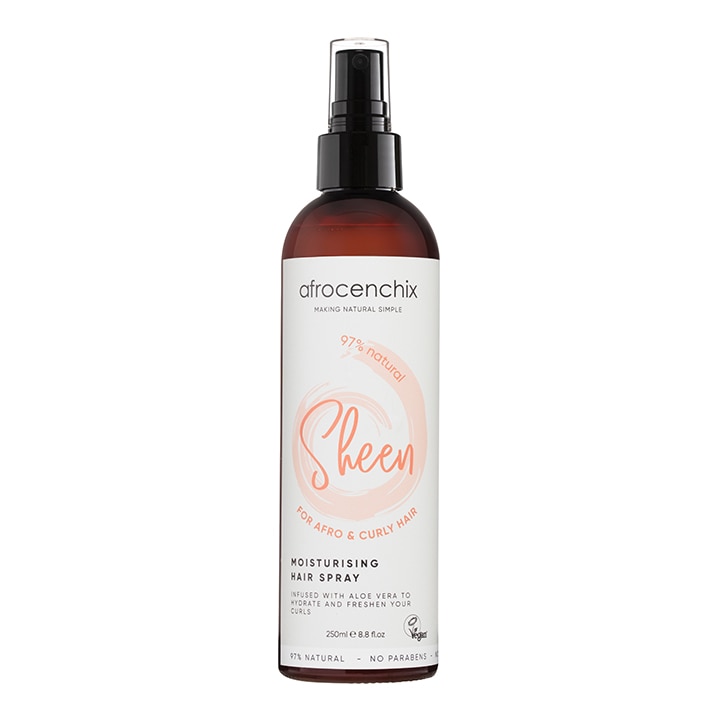

4. Dead Sea Spa Magik Hair Magic Serum
- Anti-frizz formula for shiny hair
- Helps to detangle and prevent split ends
- Intensely conditioning suitable for all hair types
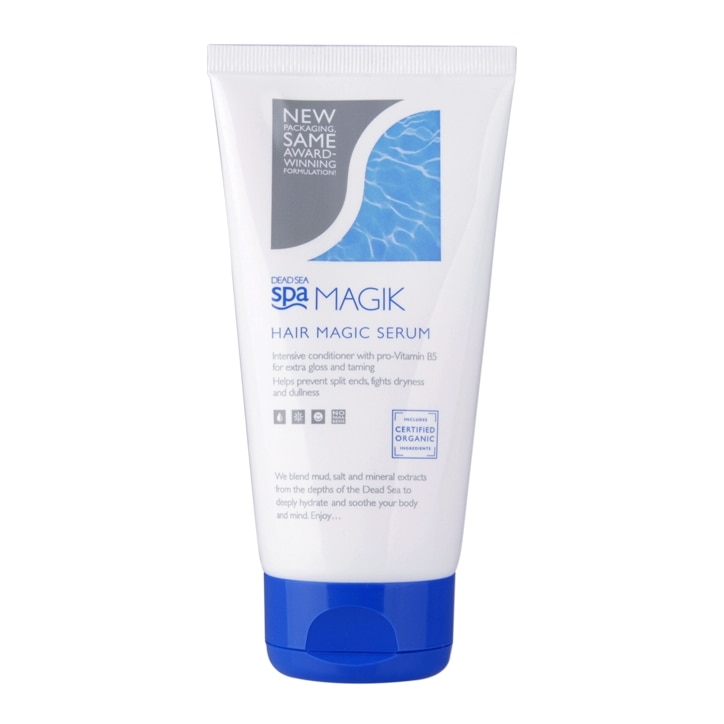

5. Dr Organic Moroccan Argan Oil Hair Treatment Serum
- Helps to detangle hair and tackle frizz
- Easily absorbed by your hair for a noticeably shiny, smooth, silky finish
- Smells wonderful with natural cinnamon, rosewood and patchouli fragrances
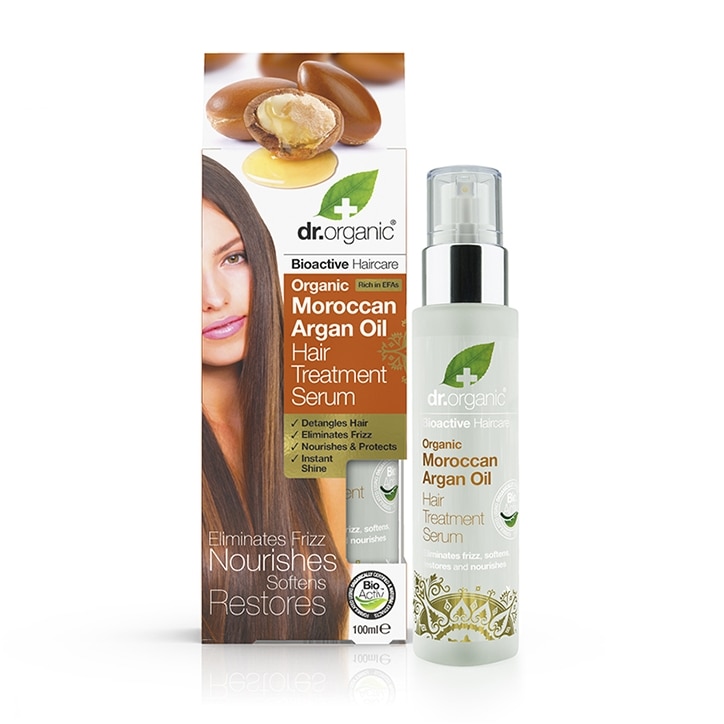

Best home remedies for frizzy hair
Generally speaking, a home remedy for damaged or dry hair should also help you to reduce hair frizz. Check out these natural hair treatments for dry hair recipes that you can make at home with nourishing natural ingredients.
Summary
- From changing your pillowcase to upping your use of hair conditioner, there are many ways to help tackle hair frizz – see which ones work for you!
Last updated: 16 April 2021


